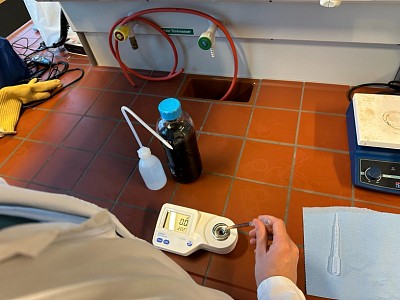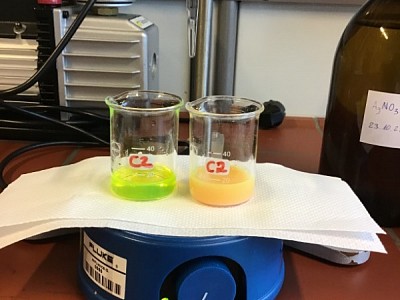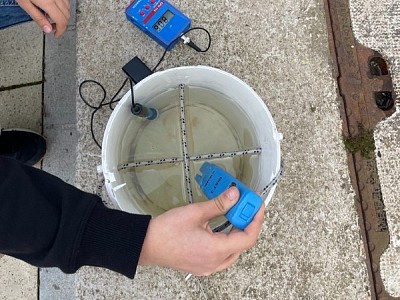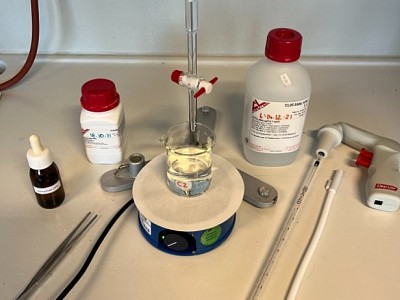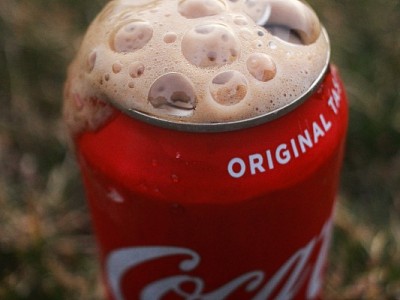Life Sciences Lab
Since 2018
Projects
We are currently involved in several science & engineering projects:
- Designing, building and maintaining a photobioreactor for microalgae ;
- Studying the use of microalgae to improve indoor air quality (removal of CO2 and VOC) ;
- Investigating the use of mushroom mycelium as a structural material ;
- Characterising different food fermentation processes ;
- Photomicrography of microorganisms found in the local environment ;
- Determining and monitoring water quality of the nearby Alzette river.
In the past, we've conducted experiments and studies on a wide range of topics, including:
- Collecting, isolating and characterising wild yeast strains from local orchards ;
- Determination of physical and chemical properties of honey ;
- Extraction, detection and quantification of microplastics in soil samples ;
- Producing perfume from waste ;
- Determining the source of microorganisms in sour dough fermentation ;
- Characterising the fermentation processes of ginger bug and kombucha ;
- Making yogurt using plant-based milk alternatives ;
- Comparing the fermentability of different cereal grains for beer production.
Workshops
We organise a range of chemistry, microbiology and molecular biology workshops, targeted at audiences of all levels. These are held by adult supervisors, as well as advanced pupils.
Equipment
- safety equipment ;
- basic lab equipment ;
- hotplate stirrers ;
- waterbath ;
- bench-top autoclave ;
- incubator ;
- orbital shaker (room temperature) ;
- vacuum filtration ;
- UV-Vis spectrophotometer ;
- micropipettes ;
- pipette controllers ;
- thermocycler (miniPCR mini16) ;
- agarose gel electrophoresis (miniPCR blueGel) ;
- microcentrifuge (Eppendorf MiniSpin) ;
- compound trinocular microscope (Motic BA310 LED) ;
- inverted trinocular microscope with phase contrast optics (Motic AE31E) ;
- stereo microscope with cold light source & phototube ;
- 2 DSLR cameras (Canon EOS 100D).
The story so far...
The Life Sciences Lab (LSL) came into existence in 2016 as an elective course called Made by Microbes and initially focused on the study of fermented foods (yogurt, sourdough, beer, kombucha, vinegar, ginger ale, ...).
